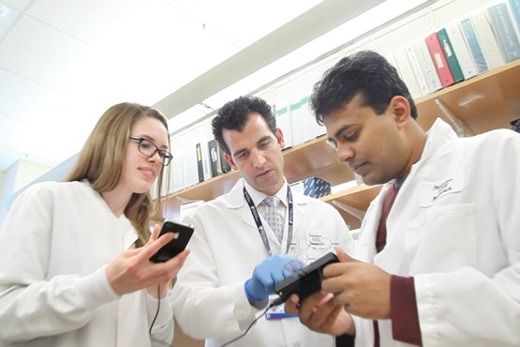A team of researchers, among them Dr. Hadi Shafiee, Ph.D., an Iranian instructor in medicine at the Division of Biomedical Engineering at Brigham and Women’s Hospital, Harvard Medical School, has developed a new smart phone application which helps detect a variety of bacteria in blood and the diseases they cause.
The following is the translation of a report Mehr News Agency posted online on April 4 about how this application could help doctors detect various diseases:
Among other conditions, the technology is aimed at detecting HIV and E-coli. There is hope that in the not-too-distant future this remarkable biosensing platform could swiftly and remotely diagnose those who have most likely contracted such diseases only by using a drop of blood from a fingerprick.
The platform is also capable of accurately detecting pathogens from plasma. More interestingly, the results can be transmitted via mobile phones or other telecommunication means to anywhere in the world.
Dr. Shafiee and his fellow researchers hope that this new technology will be used to promote healthcare worldwide.
